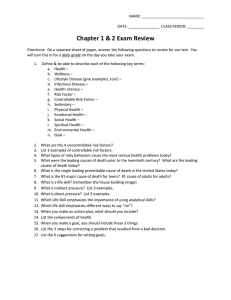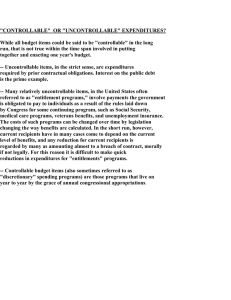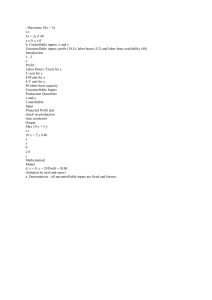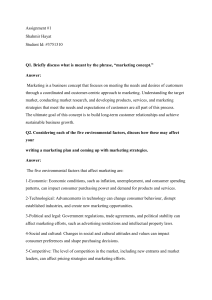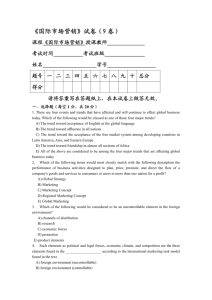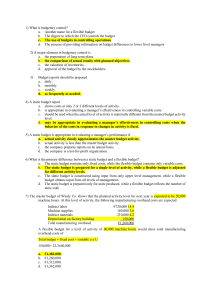Controllable & Uncontrollable Health Risk Factors Explained
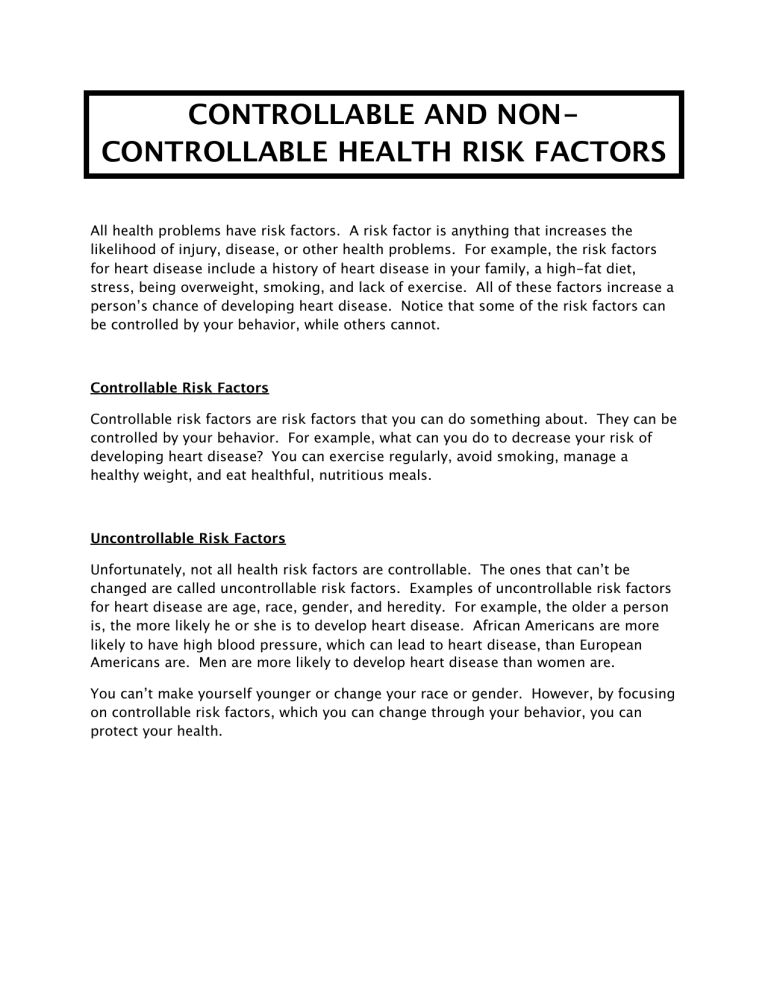
CONTROLLABLE AND NON-
CONTROLLABLE HEALTH RISK FACTORS
All health problems have risk factors. A risk factor is anything that increases the likelihood of injury, disease, or other health problems. For example, the risk factors for heart disease include a history of heart disease in your family, a high-fat diet, stress, being overweight, smoking, and lack of exercise. All of these factors increase a person’s chance of developing heart disease. Notice that some of the risk factors can be controlled by your behavior, while others cannot.
Controllable Risk Factors
Controllable risk factors are risk factors that you can do something about. They can be controlled by your behavior. For example, what can you do to decrease your risk of developing heart disease? You can exercise regularly, avoid smoking, manage a healthy weight, and eat healthful, nutritious meals.
Uncontrollable Risk Factors
Unfortunately, not all health risk factors are controllable. The ones that can’t be changed are called uncontrollable risk factors. Examples of uncontrollable risk factors for heart disease are age, race, gender, and heredity. For example, the older a person is, the more likely he or she is to develop heart disease. African Americans are more likely to have high blood pressure, which can lead to heart disease, than European
Americans are. Men are more likely to develop heart disease than women are.
You can’t make yourself younger or change your race or gender. However, by focusing on controllable risk factors, which you can change through your behavior, you can protect your health.
